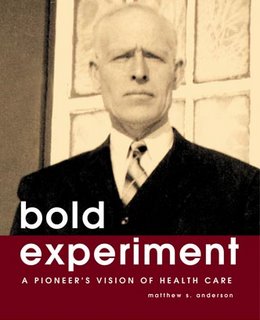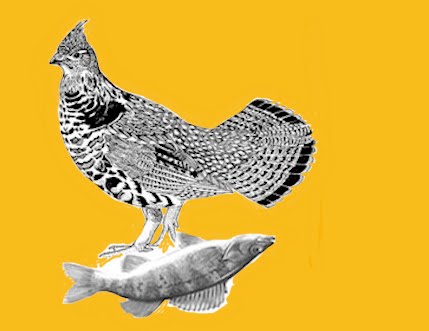
Following close on the heels of my recent and far from yet finished dissing of Gretzky and his purported greatness, this post may get some of you thinking that I am stuck on the theme of undeserved adulation – a kind of “Let us now flay famous men”! Perhaps. But the more immediate precipitant of the rave here is the sudden spotlight on the late and (I don’t think all that) great Tommy Douglas both on CBC’s Ideas series this week, on an upcoming biopic, Prairie Giant and, worst, in the as-usual inane ads preceding every CBC radio newscast by that ridiculous persona, Promo Girl. (I shall reserve for later a few lyrical lines for that twit and the dumbing down of Canada’s public broadcaster that she reflects and so adds to).
Here I have larger quarry. Idiot Girl’s clips, built entirely on the quivering foundation of the “Greatest Canadian” series CBC ran in 2004, blithely announce Douglas’s alleged status without any explanation for the uninitiated as to where that soubriquet comes from, and then goes on to proclaim that he had “ushered Canada into the modern age”. Oh the swine of our fair land have never been so spotless after hourly dousing with this utter hogwash!
First, let’s have a quick look at that spurious contest itself. Suffice to say that if some banana republic ever picked their leader with anything like the selection methodology CBC stole from BBC , it would be a laughing stock for anyone with a modicum of democratic concern and understanding. Why? At least four reasons:
(a) Nous semblons oublier un petit coin du Canada – the race was not run at all on the sister network, Société Radio-Canada and thus categorically disenfranchised about 25 % of the population, indeed the portion of our citizenry that most avidly listens to either arm of the CBC.
(b) The high-tech version of old-fashioned vote stuffing – there was no real control over who could vote or how many times (given that a determined multiple vote caster can fix himself up with 10 email addresses in about 15 minutes). At least three of the eventual top 50 got there with CBC’s explicit knowledge of this and, no doubt, many others probably did so below the radar screen of the public broadcaster’s lax monitoring.
(c) Unrepresentative “sampling” – or just who is watching/listening any way? Of the less than 50% of English Canadians who regularly listen to the radio, only 1 in 10 chooses CBC and there is a very strong bias within this listenership for university-educated types. Talk of elitism, so contrary to what Douglas himself publicly espoused with his second hand parables of mouseland! As for CBC TV --where the top candidates were formally nominated and profiled at length – and even smaller fraction tuned in on the English network – 7.5% or about 1 in 15 households in 2000-2001 according to the Parliamentary Committee Report, Our Cultural Sovereignty: The Second Century of Canadian Broadcasting.
(d) Last but not least, one must, with admittedly delicious tatutological reasoning, look no further than the outcome to see how biased and, in many a case dog-dumb this Greatest Canadian travesty was: No women in the top 10? Stomping Tom Connors at 13th ? And the coup de grace, Don Cherry up in the number 7 position!?
As for Tommy Douglas and his ushering in of Canada’s modern age, indeed even his much vaunted paternal status vis-à-vis national medicare, today’s electors cum celebrants seem to have forgotten that the man never led a party to more than 17% of the popular vote in Canada, never had the kind of say-so over major advances (if such they be called) in our nation’s society that would merit such claims, in short, was never Prime Minister or even close to.
I well recall (and wish I could locate a copy of) an editorial cartoon by the late Duncan MacPherson of the Toronto Star on the eve of a federal leaders debate. It portrayed the goal of electoral victory as an apple on a boy’s head a la William Tell (the boy stood for the bemused Canadian voter). Lester Pearson and John Diefenbaker were very nervously lining up their shots while, dressed appropriately as a jester, Douglas was merrily aiming wildly between his legs while looking in another direction from the fearful boy. MacPherson’s well-taken point was that canny Tommy, fully knowing the zero possibility of hitting the target of a winning mandate could do and say anything he wished – which is precisely what he (and the long string of successor NDP leaders) always did. He had the luxury of promising and promoting whatever sounded most progressive and admirable because the truly hard work of legislating and implementing anything was never going to fall in his lap.
Even in what is supposed to be his halcyon achievement - universal free medical care in Saskatchewan – the predominance of his role is open to question or, at least, moderation. The concept sprung into existence in – of all places – Alberta in the formative convention of the Co-operative Commonwealth Federation.
 Universal health insurance was a plank in its inaugural manifesto germinating from the real grassroots of prairie farmers rather than then-youthful Tommy's eye twinkles.
Universal health insurance was a plank in its inaugural manifesto germinating from the real grassroots of prairie farmers rather than then-youthful Tommy's eye twinkles. Almost completely unsung - lost indeed in the glitzy acclamation of Douglas as medicare's originator - no doubt now much abetted by the even greater acting achievements by and tributes from his grandson, Kiefer Sutherland - were the tireless, politically unrewarded, efforts of the likes of Norwegian immigrant dirt farmer, Matthew Anderson who successfully pushed Regina legislators to enable local government sponsored health insurance plans. After his earlier and significant pioneering work, Anderson went back to the farm and into undeserved obscurity, all the more so due to the blaring overstatement of Douglas's role.
Douglas became the first CCF leader to win electoral victory in Saskatchewan in 1944. Despite Tommy’s five successive majorities in that province, it was not until 1962, 18 years later and after Douglas left the increasingly hot kitchen of Saskie medicare battles in the hands of his successor, Woodrow Lloyd, for his foray in national politics, that the dream of fully free hospital care for all that province’s citizens was realized. Indeed, it was that now mostly forgotten successor who held the line in the face of mobs of irate and striking physicians in the summer of ’62.
 If Douglas was “father” of at least Saskatchewan medicare, no doubt mightily enjoying the act of procreation and the kudos when the prodigal child reached fame, it was poor forgotten Lloyd who went through the labour, birthing and struggling infancy, while dead-beat “Dad” took off for Ottawa.
If Douglas was “father” of at least Saskatchewan medicare, no doubt mightily enjoying the act of procreation and the kudos when the prodigal child reached fame, it was poor forgotten Lloyd who went through the labour, birthing and struggling infancy, while dead-beat “Dad” took off for Ottawa. By 1967, vociferously applauded but hardly led by Douglas, the Liberal Government passed national medicare. Unquestionably the former Saskatchewan Premier’s commitment to universalize medical care back in Regina, two decades before, was powerfully influential. But to exalt Douglas’s supporting role to the top podium and thereby overlook others' central roles -- John Diefenbaker whose Hospital Insurance and Diagnostic Services Act started cost shared medical insurance across Canada, Justice Emmett Hall whose powerful Royal Commission detailed the need and mechanisms for medicare and Lester Pearson and Paul Martin sr. who enacted the 1966 Medical Care Act that made it happen -- is grossly unfair.
To attribute to Douglas, as Idiot Girl’s clips do, the advances, such as they were, on human rights, multiculturalism and, of course, medicare that unfolded in Ottawa during the time that he led the third or fourth ranking party in Parliament, is a distortion of history that those of us actually alive and aware at the time would find purely laughable – were it not for the insufferable burst of adulation, including the ominously looming biopic (A CBC-funded which a cynic might say may help to explain the glorious excretia of the also CBC-produced Greatest Canadian series), that we are now having to abide.
How easily does historical fact blur to vague rememberings and thence to utter myth. We older Canadians had no fewer than four chances to decide just how great Douglas was, not in some ill-conceived, poorly managed and elitist popularity contest but in the national elections of 1962, 1963, 1965 and 1968 when we gave the "Prairie Giant" a consistent and resounding thumbs down.

3 comments:
Well done!
[url=http://xzntqwsb.com/bhxp/rmbr.html]My homepage[/url] | [url=http://ramusdcv.com/wabr/cflm.html]Cool site[/url]
Well done!
http://xzntqwsb.com/bhxp/rmbr.html | http://wcsbwqgs.com/gcgw/zszz.html
ready to move home in saskatchewan
Post a Comment